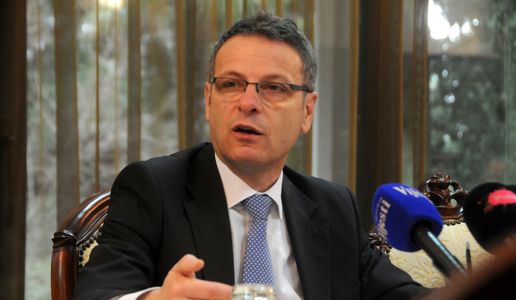Garčević on RFE on U.S. National Defense Act
Ambassador Vesko Garcevic, Professor of the Practice of International Relations at the Frederick S. Pardee School of Global Studies at Boston University, was recently interviewed on the United States National Defense Act (NDAA) of 2019.
The NDAA, yet to be adopted by Congress and signed by President Donald Trump, recommends increased engagement and military-to-military cooperation in the Western Balkans. It may be a glimmer of hope regarding engagement from the United States in this part of Europe, but it is too early to draw optimistic conclusions, according to Garčević .
In a May 25, 2018 interview with Radio Free Europe, Garčević said that the situation with Russian propaganda, mentioned in the NDAA’s chapter Countering Malign Foreign Influence Campaigns, is more complex and challenging in the Balkans than in Western Europe. In the region, Russia has established numerous Moscow-based media offices which all broadcast or print their information in the Serbian language in order to bolster its influence. In Serbia alone, there are more than 100 Moscow-backed organizations and media outlets.
EU engagement in the region is not satisfactory, according to Garčević. The recent messages that the EU enlargement process can be halted or slowed down, if coming from Paris, should be taken with due seriousness. A potential termination of the EU integration would have far-reaching, very negative consequences for security and stability of the Region and Europe as a whole, according to Garčević. Garčević argues that EU integration has no alternative as political systems in the Western Balkans are vulnerable, and the EU and US should be more proactive in order to counter the growing influence of third states, particularly Russia.
During his diplomatic career, Amb. Vesko Garcevic dealt with issues pertinent to European security and NATO for almost 14 years. In 2004, he was posted in Vienna to serve as Ambassador to Organization for Security and Cooperation in Europe. He had been a Montenegro’s Ambassador to NATO from 2010 until 2014 and served as a Montenegro’s National Coordinator for NATO from 2015 until he joined the faculty at the Pardee School.
